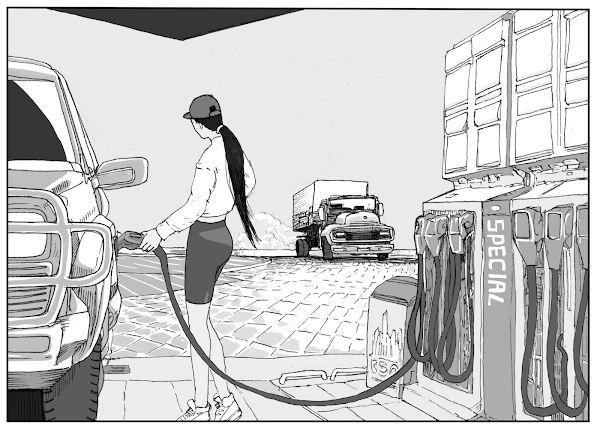This film should be called “The Children of Marx and Coca-Cola.” (Masculine Feminine)
I was at Border’s last Sunday. Just spending the afternoon away, not upto much. Read a book of poetry by a New Zealander Amy (something) titled Propaganda Poster Girl. She had written this collection of poems on her travels around Vietnam, Cambodia and then back in her home in New Zealand. Loved it.
And then just before I left, I browsed through the DVD section and found this French film called Masculine Feminine by Jean Luc Godard. Now I had heard this man’s name when I studied film in Shillong. He was one of the great directors of the French New Wave. He also quoted: “All you need to shoot a movie is a pretty girl and a camera.”
Now, to me, when I come across some work of art and it makes me wish that I had been the one who did it, then I consider it good art. Godard makes me wish I was him. That I was a part of this revolutionary independent film wave and that I was the one who instead said, ”All you need to shoot a movie is a pretty girl and a camera.”
I got this DVD for $5 instead of the advertised $39.99 because it happened to be on sale when I picked it up. How amazing. Surely it was a sign this was meant to be.
Sure enough..
The film is life changing material. Like Tokyo Story by Yasuziro Ozu was. LikeShortcomings by Adrian Tomine was.
I found this review online and I thought I couldn’t have said any better (excuse the mono-paragraph, I know its annoying to read without paragraph breaks!):
Masculine, Feminine
(1966, France, d. Jean-Luc Godard)
Most of the students I watched this film with groaned and complained at the end of it. The biggest complaints: it had no story, no plot, and was basically style over substance. All I was thinking was that this was clearly their first Godard movie. And though I’m the last person to defend style over substance, Godard’s films have substance, they’re just hidden: modern and ultra-hip but lost protagonists. Godard’s leads don’t know what they want, they just know that they have wants. Godard’s leads don’t go to a place with goal, they travel spot to spot aimlessly, musing on the condition of their role in society or reflecting postmodern ideals in every line. One of my friends, after I told him this film was about its style, complained that he felt Godard was just trying to draw attention to himself in a manner like “Look guys! Look how artsy I am”. And while that comment would be applicable had his films been released a decade or even five years after they were, it definitely isn’t here. For Godard was not using examples of the past and stretching them to be artsy, he was creating artsiness. He wasn’t trying to be indie, but he was trying to break away from the norms of French traditional cinema. And for that, I think he is an exemplary and inspirational figure in filmmaking. While I don’t think this is his best film, it’s up there. The musings on sex and the social obligations a man faces and dating imposes are brilliant and the fact that he wanted to make a pure character film on postmodernism is fascinating. To some it was boring, but to me it was riveting. But I think Godard must be prefaced, must be introduced, before viewing his films. His influence is now so commonplace amongst independent pictures and Hollywood blockbusters alike, one would never guess that it did in fact begin with him. But for what it is, Masculin-Feminin is a relaxed and contemplative look at the youth of then-present day France – and what’s even better – it feels a lot like today.
(aneeshchaganty.wordpress.com)

